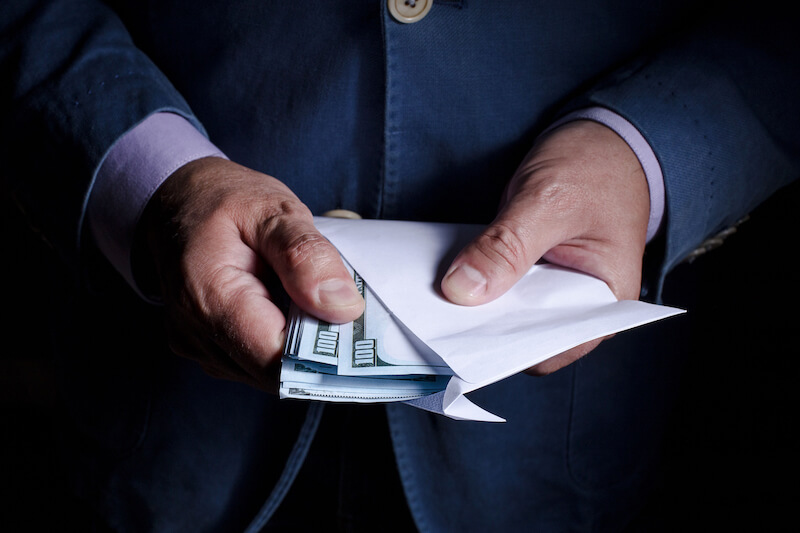White Collar Crimes
Charged with White Collar Crimes in Dallas, TX?

White collar crimes are a category of business-related crimes. They often involve people in positions of trust using deceit or manipulation for their own financial gain. Although these are non-violent crimes, they are aggressively prosecuted and could result in harsh penalties under the law.
Innocent people are often accused of white collar crimes when investors and investigators simply don’t understand how your business works. If you have been charged with a white collar crime in Dallas, you should consult with a local criminal defense attorney immediately. Even just an allegation could do serious harm to your business reputation.
Common White Collar Crimes in Dallas
Many white collar crimes fall under both Texas state law and federal law. Below are some of the most common white collar crimes prosecuted in Dallas.
- Embezzlement
Embezzlement is a type of theft where the person committing the crime was in a position of trust or responsibility over the property. Embezzlement is most often committed by employees or professionals who have access to other people’s funds. For example, a Dallas financial advisor would be guilty of embezzlement if they steal a client’s funds rather than investing the money. A second example would be if an employee funnels company money into their own bank account.
- Fraud
Fraud is any activity where a person intentionally deceives another or gives knowingly false information to get something of value from the victim. There are many different types of fraud, including mail and wire fraud, bank fraud, health care fraud, mortgage fraud, credit card fraud, investment fraud, and tax fraud. All of these fraud offenses are serious and may be charged as federal crimes.
- Bribery
Bribery is where an individual gives money or something of value to a public official in exchange for the public official acting in a certain way. For example, it is bribery if a local mayor accepts payments from a city contractor in exchange for receiving bids.
- Money Laundering
You may be charged with money laundering, if law enforcement believes that you were attempting to hide money or property obtained in connection with a crime. Generally, money laundering is charged in connection with another crime, such as fraud, tax evasion, or embezzlement.
- Insider Trading
Insider trading is when individuals use their contacts to buy and sell stocks before relevant information is made public. For example, a person might sell their stock in a company after receiving confidential information about the companies poor performance. They are able to sell their stock at a higher price before the information is made public and the stock’s price falls.
- Cybercrime
Cybercrime is criminal activity that involves a computer. Cybercrime could include stealing credit card and personal information, computer hacking, or copyright infringement. Cybercrime is becoming more and more commonplace.
- Forgery
An individual can be charged with forgery if they alter, make complete, execute, or authenticate a writing with the intent to defraud or harm another person. Forgery can include filling the blanks on signed document or altering or destroying an existing document.
- Tax Evasion
Tax evasion involves the nonpayment or underpayment of taxes. Typically, tax evasion occurs when individuals or a corporation misrepresent their income to the IRS. The government could begin a tax evasion investigation against you even if you unknowingly filed incorrect or incomplete tax forms.
Penalties for White Collar Crimes in Dallas
The potential penalties for white collar crimes in Dallas vary from case to case. The penalties can range from a class C misdemeanor to a first degree felony depending on the specific circumstances surrounding the offense, your prior criminal history, the number of people the crime affected, the value of the property stolen, and whether the crime was committed against the elderly. The penalties you could face include restitution, imprisonment, fines, community service, and probation.
Additional consequences of being convicted of a white collar crime include losing your license to practice, getting banned from your industry, and losing investment capital in your business.
What Should I Do If I Have Been Charged?
The first thing that you should do if you have accused or charged with a white collar crime is to reach out to an experienced local Dallas criminal defense attorney who will fight hard to defend you against the accusations.
Philip D. Ray is an experienced Dallas criminal defense attorney and former prosecutor. He will explore the options available to you and fight aggressively to obtain the best outcome. Call the law office of Philip D. Ray today at (469) 588-6770 to see what he can do for you.
